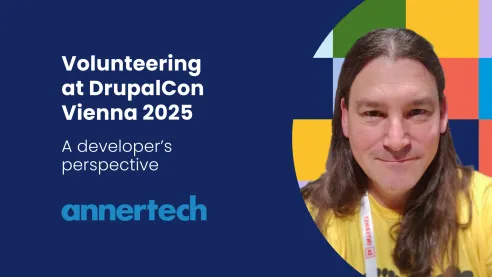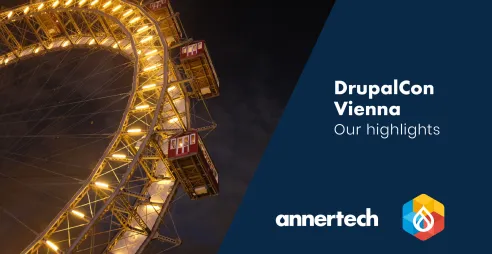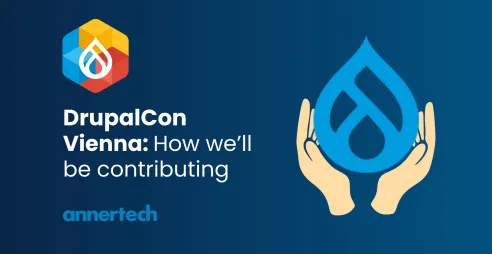The non-developer’s awakening: my first DrupalCon
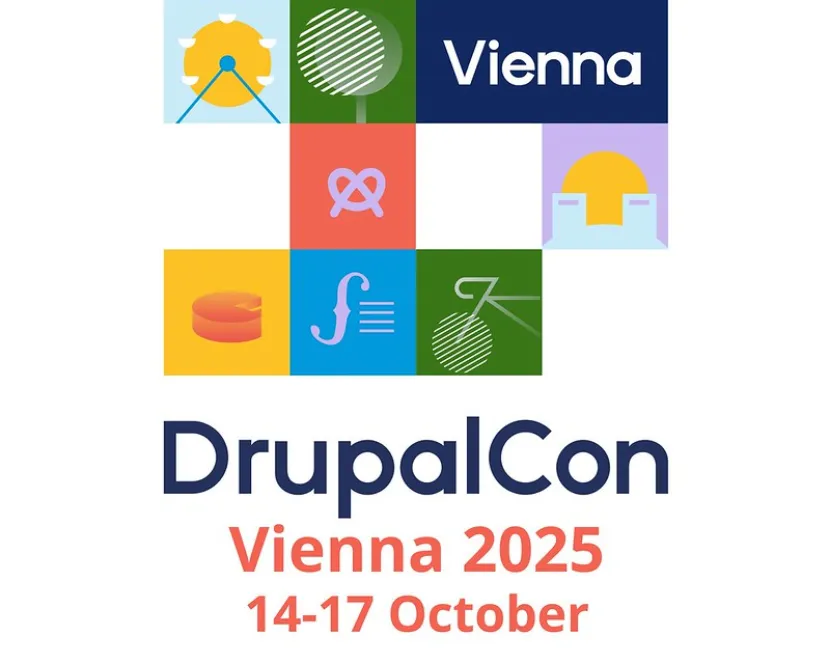
For four days in October, my professional world – which for the past year has been immersed in the world of Drupal at Annertech – descended on Vienna for my very first DrupalCon.
I arrived with a mix of genuine excitement and a healthy dose of uncertainty. As someone who is decidedly not a developer and who had never even worked with Drupal before joining the Annertech team, this wasn't just a conference; it was my first real, unvarnished introduction to the Drupal community.
What I discovered was a world far more vast, collaborative and powerful than I could have imagined. If I had to sum up my week, it would be this: I came for the technology, but I stayed for the community.
Association over organisation: The power of community
The first thing that struck me was the sheer scale of the event. The Austria Center Vienna was a hive of activity, buzzing with keynotes, countless different track sessions, and dedicated community contribution days. It was more extensive and involved than I had ever anticipated. But the truly monumental realisation came from understanding how Drupal works.
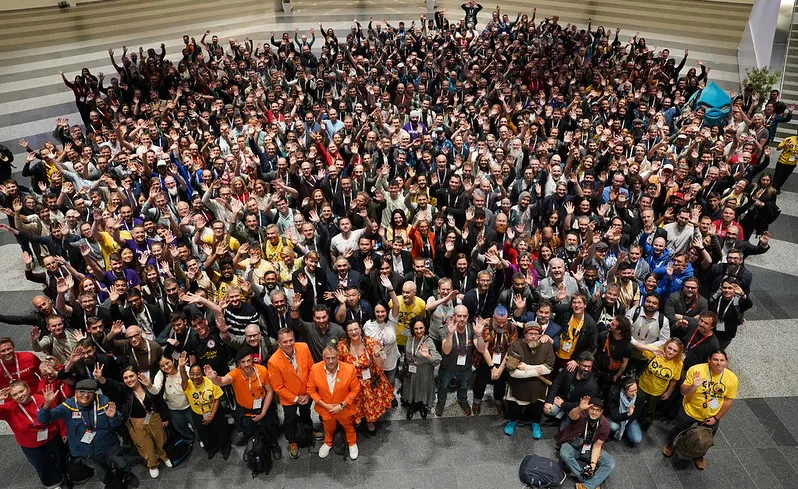
My background is with other major CMS platforms, like WordPress and Shopify, which are run as established, commercial organisations. I’d always had it in my head that Drupal, too, must be a standard company, a similar corporate structure driving the roadmap. I knew there was a community, but I didn't grasp its depth or, critically, the sheer extent to which it drives the platform's development.
The greatest "aha!" moment of the week was understanding that Drupal is not a company – it is driven by the Drupal Association and the community.
This distinction is massive. To witness the development roadmap, the core innovations, and the entire future trajectory of a major platform being driven by volunteers from the community was truly eye-opening. In my previous experience, a dedicated product manager and full-time developers would manage and implement this kind of ambitious roadmap. To see the same level of commitment, effort, and high-quality outcome – all powered by a passionate, global community – was a profound testament to the open-source model. It’s what gives the Drupal community its distinctive heart and soul, and it instantly dispelled my previous, corporate-tinted assumptions.
Innovation for the new user: The Driesnote highlight
The absolute highlight of the conference for me was the Driesnote on the first day. It was exciting to see the clear direction Drupal is heading in, particularly its focus on innovation to expand its reach.
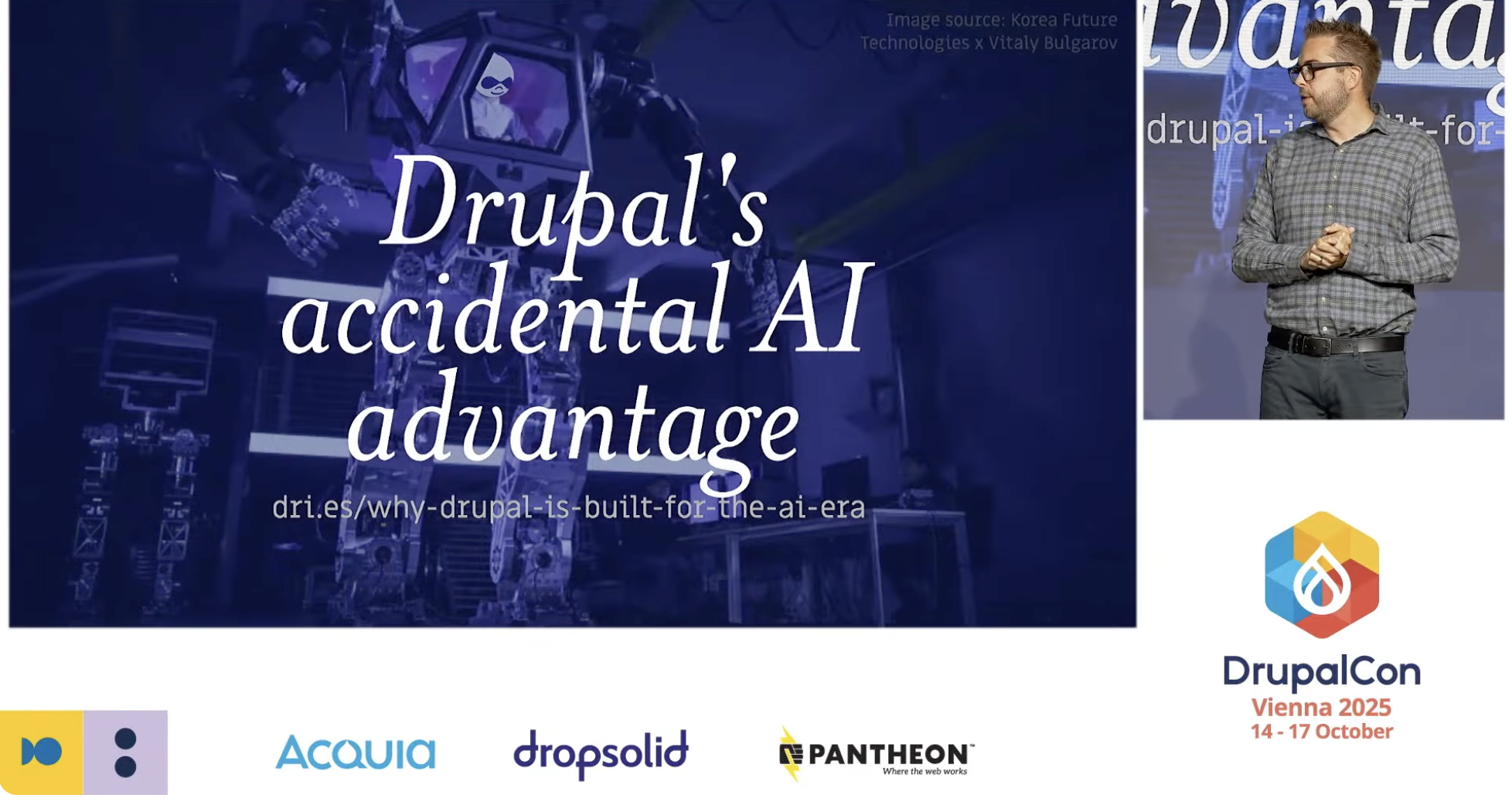
The advancements presented around Canvas, a visual site-building tool, and the new CMS enhancements were particularly exciting. These tools are clearly aimed at opening Drupal up to a much wider audience, including non-Drupal developers, those working primarily in JavaScript, and – most importantly – for the smaller-scale market. I’ve often felt that this market segment, which might only have a marketing team of one or two people driving a website, has been left primarily to the likes of WordPress and Shopify because of their perceived ease of use.
The innovative enhancements I saw at DrupalCon are aimed squarely at making the Drupal experience easier and more accessible for these smaller organisations.
This push for usability and low-code solutions is a smart move that will undoubtedly expand the platform’s footprint and make it a viable, enterprise-grade option for organisations of all sizes in years to come.
My non-technical track: a surprise of relevance
My biggest surprise, given my initial uncertainty, was the sheer number of sessions I could attend as a non-technical member of the Drupal ecosystem.
I discovered rich, relevant content across tracks focused on agencies, leadership, and management. But the most valuable for me was the Women in Drupal session. It was fantastic to connect with so many accomplished women in the community. We shared stories about the challenges we face as agencies, and it was great to realise that the issues we are dealing with at Annertech were being echoed around the room.
The discussion wasn’t just about commiserating, though; it was an inspiring forum for sharing different solutions and ideas, all working towards making the Drupal community and the platform better for our clients. The networking was invaluable, providing a supportive space that felt genuinely collaborative.
Searching for the breakthrough
While the Driesnote was fantastic for the broader market, I did walk away with one minor, unmet expectation: the search for groundbreaking, client-ready innovations for our agency’s primary target market of larger private and public sector organisations.
The focus on Canvas and the CMS, while amazing, isn't really aimed at the complexity and scale of our clients. I also attended several sessions on AI, which were very interesting, but I didn't find anything truly revolutionary that we hadn't already begun to explore or implement with our clients.
This led to a dual feeling: on one hand, it was incredibly reassuring and exciting to realise that as an agency, we were perhaps ahead of the curve in our thinking and development compared to some of the general conference content.
On the other hand, I had hoped to return home with one or two truly novel AI-driven ideas to immediately present to our clients, and that didn't quite materialise.
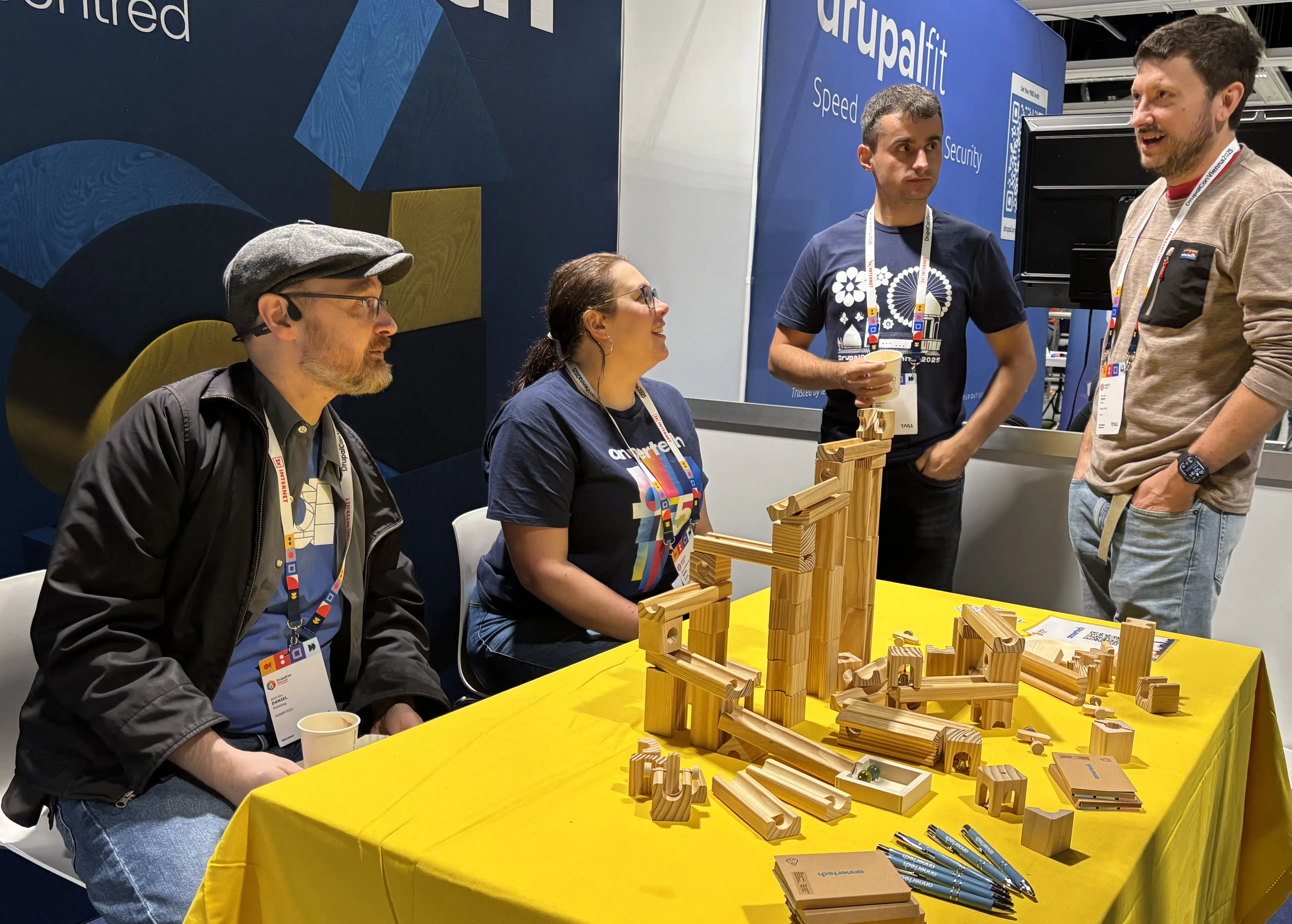
Team bonding in Vienna
For Annertech, which is a fully distributed company, DrupalCon served a dual purpose. We used the event as the base for our bi-annual team get-together. The two days before the conference were dedicated to internal work: fine-tuning our organisation’s roadmap, strategising for client improvements, and coming up with a wealth of actionable items for our to-do list.
But equally important was the team bonding. Over the course of the week, I got to spend quality time with colleagues I don’t interact with daily. Seeing the conference through the eyes of our designers, developers, support team, and my customer success and delivery managers peers was enlightening.
We all arrived at DrupalCon with different agendas and different things we wanted to learn, and simply knowing each other better and understanding our different perspectives on client work was incredibly beneficial.
Conclusion: Finding my place in the community
All in all, my first DrupalCon was an overwhelmingly positive experience. I’ve walked away with a profound respect for the power of the Drupal community and a deeper understanding of the collective spirit that drives it.
Crucially, as a non-technical person, I now see there is a clear space for me in this community. I had previously shied away, feeling like my contributions would be limited, but I realise now that driving the platform forward requires more than just code; it requires a client-centric and customer-centric approach that I can actively help to champion.
I am more excited than ever to get involved, and I’m already looking forward to the next one. Having met the fantastic team from the Netherlands community while in Vienna, I’m eagerly anticipating DrupalCon Rotterdam and another year of learning, growing, and contributing to this truly amazing community.
Would you like to explore how the power and community-driven innovation of Drupal can transform your digital platform?
Get in touch with Annertech today to chat about what Drupal can do for you!


